Hey there! Keeping up with your child's health is super important, and that's why we're reaching out to remind you about their upcoming pediatric check-up. Regular visits help ensure your little one is growing healthy and strong, catching any early signs of potential issues. So, don't miss out on this chance to give your child the best care possibleâread on to find out what to expect during the appointment!

Patient information
Ensuring regular pediatric check-ups is essential for a child's growth and development. These scheduled appointments typically occur at key milestones, such as 2, 4, and 6 months, and then annually thereafter. These evaluations often take place in pediatric clinics or hospitals, where healthcare professionals assess a child's physical health, including height, weight, and developmental milestones. Vaccination status is also reviewed, adhering to the immunization schedule recommended by health authorities like the Centers for Disease Control and Prevention (CDC). Early detection of potential health issues during these visits can significantly improve overall health outcomes, providing parents with necessary guidance and resources for their child's well-being.
Appointment details
A pediatric check-up notification should include precise details about the appointment, such as the date, time, and location of the visit. For instance, the appointment may be scheduled for November 15, 2023, at 10:00 AM, at the Children's Health Clinic (123 Main St, Springfield, IL). Important notes can highlight that this check-up aims to assess growth and development in children aged 4 to 6 years, monitoring vaccinations, and addressing parental concerns on health-related issues. It might specify preparation required, such as bringing a health insurance card (for billing purposes) and a previous medical record (to inform the pediatrician about the child's health history).
Preparation instructions
Preparation for a pediatric check-up involves several essential steps to ensure a productive visit. Parents should gather the child's medical history, including immunization records, previous health issues, and any allergies. It's advisable to prepare a list of current medications (doses and timings) for accurate assessment and update from the pediatrician. Children should have a good night's sleep before the appointment to reduce anxiety and improve cooperation. Discussing the reason for the visit with the child can help alleviate fears, providing information in a simple, age-appropriate manner. On the day of the appointment, parents should bring the child's insurance card and any co-pay required, ensuring smooth check-in at the clinic, such as Children's Hospital of Philadelphia, which specializes in pediatric care. Snacks or comfort items may also help ease the child's nerves during the visit.
Clinic contact information
Pediatric check-ups play a crucial role in ensuring the health and development of children, particularly during the early years of life when regular assessments are vital. Scheduled appointments at pediatric clinics provide important evaluations of growth milestones, vaccinations, and screenings for common childhood ailments. Notable organizations, such as the American Academy of Pediatrics (AAP), recommend check-ups at specific intervals, typically at ages 1, 2, 4, 6, 9, 12, 15, 18, and 24 months. The clinic's contact information, essential for appointment scheduling or inquiries, often includes a dedicated phone number (e.g., 555-1234), physical address (e.g., 123 Health Lane, Springfield), and email (e.g., info@pediatricclinic.com), ensuring easy access for parents seeking to maintain their child's health.
Personalized care tips
During a pediatric check-up, healthcare professionals emphasize the importance of regular health assessments for children, typically scheduled annually or biennially. Child development milestones, such as growth rate, weight, and height percentiles, are monitored closely, with benchmarks set by the World Health Organization (WHO). Healthcare providers offer personalized care tips, addressing nutritional needs, physical activity levels, and emotional well-being specific to the child's age. Immunization schedules, including vaccines like MMR (measles, mumps, rubella) and DTaP (diphtheria, tetanus, pertussis), are reviewed to ensure adherence to public health guidelines. Parents are encouraged to foster healthy routines at home, such as balanced diets rich in fruits and vegetables, regular outdoor playtime, and limiting screen time to enhance overall development.

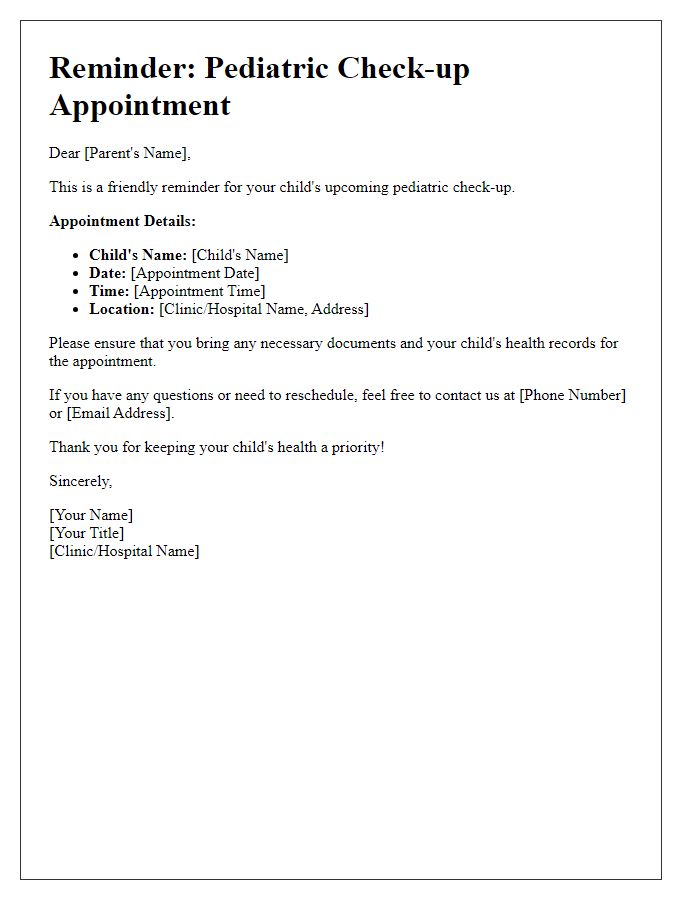
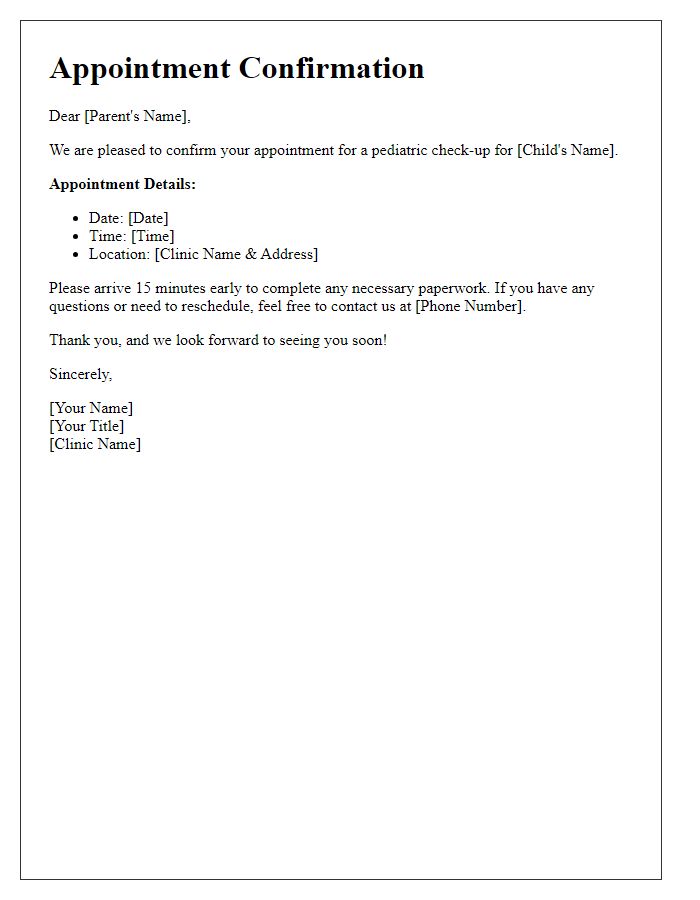
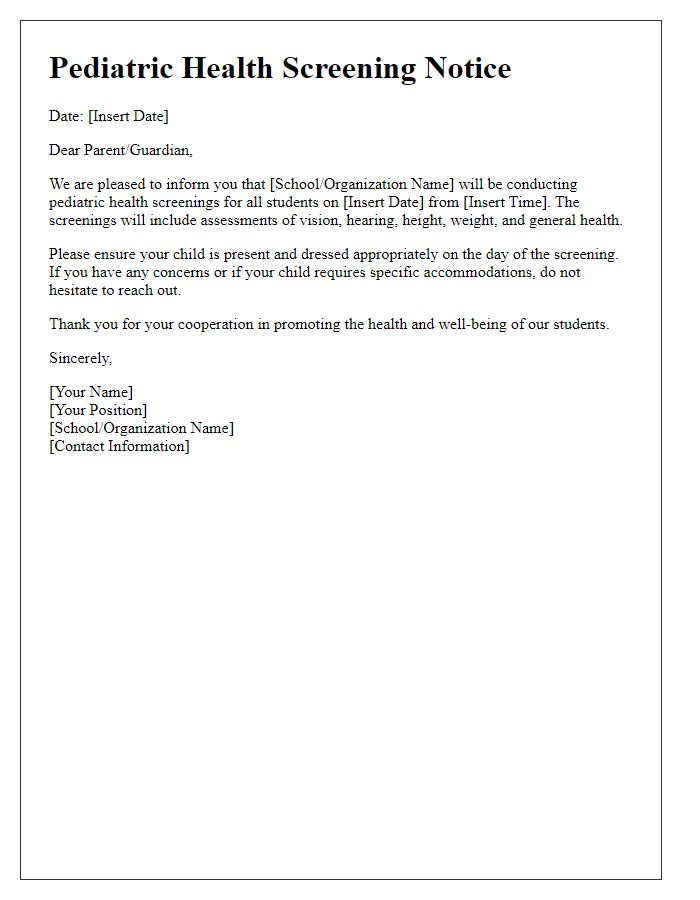
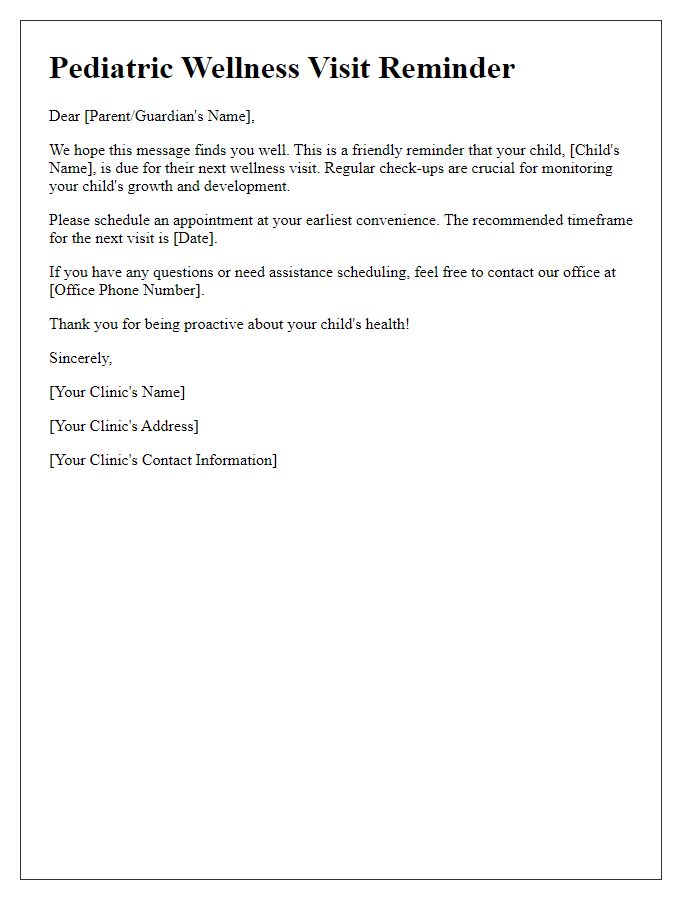
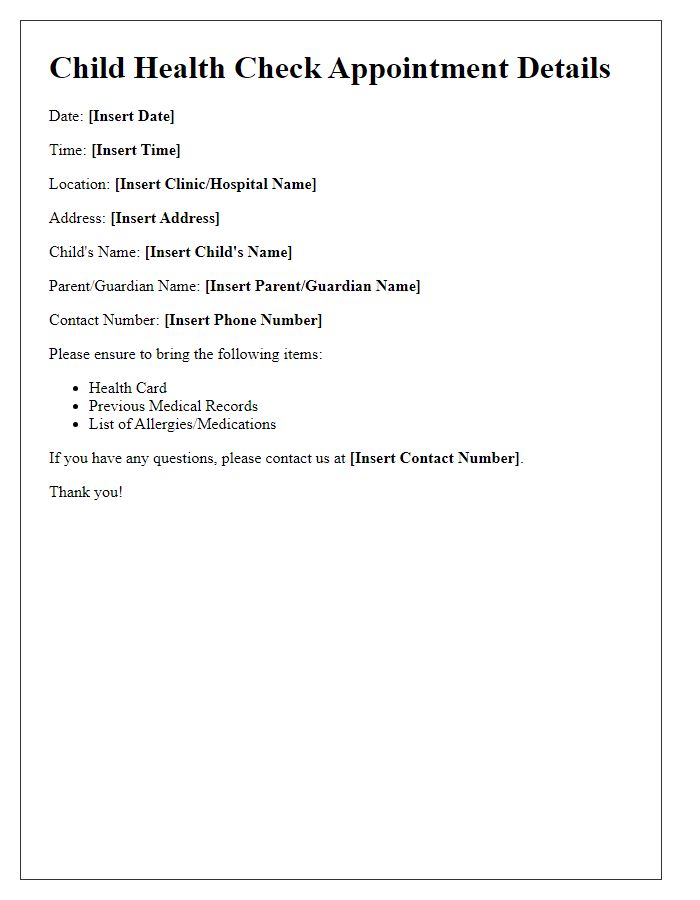
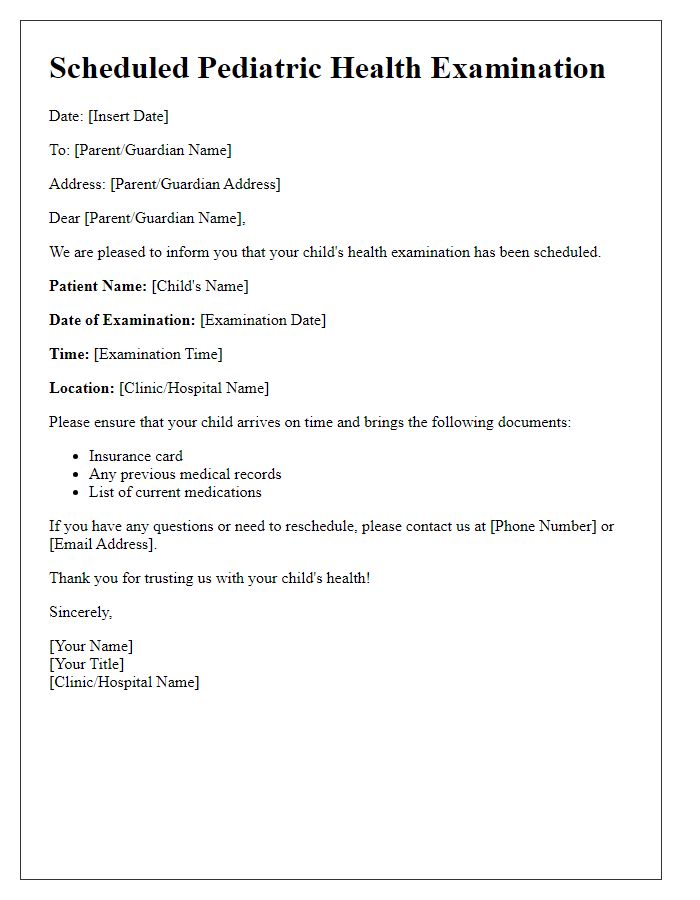
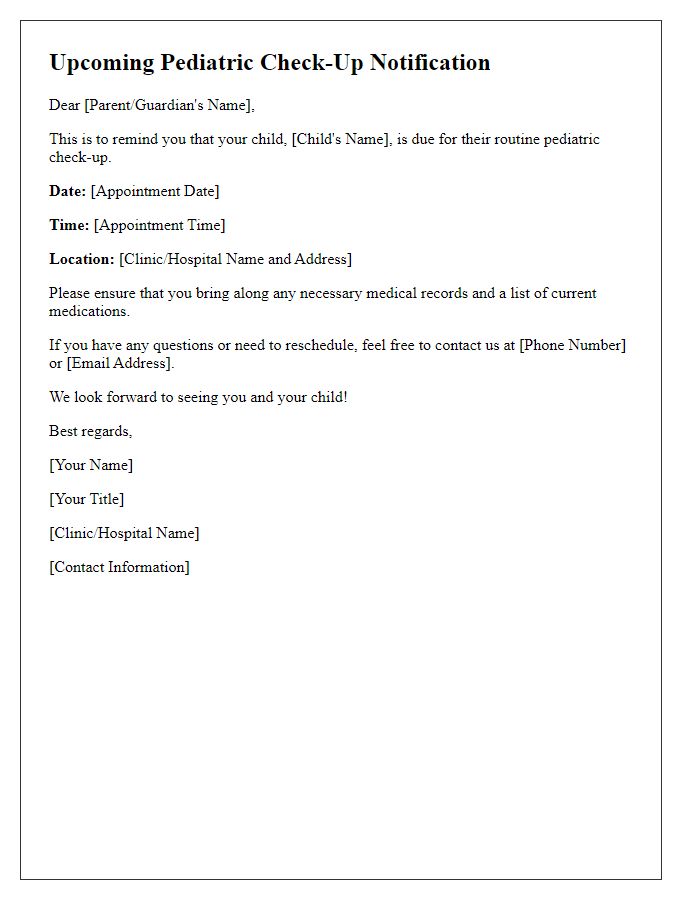
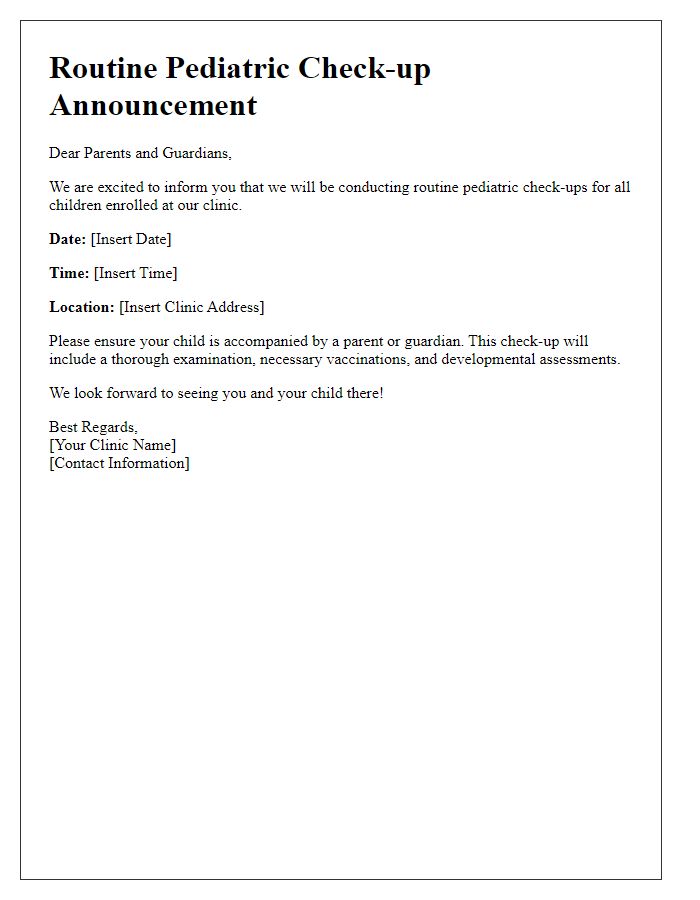
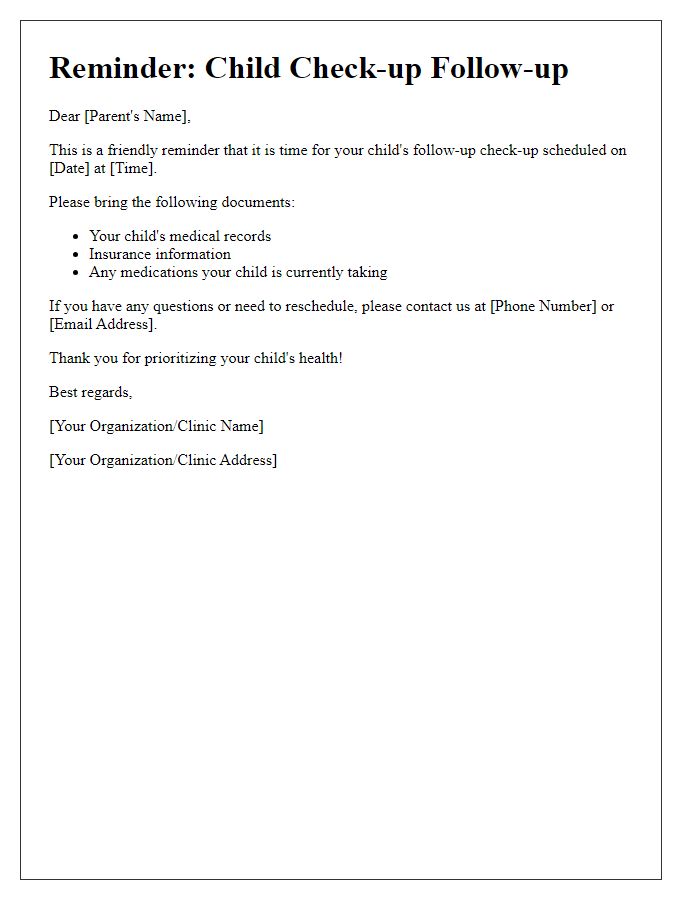
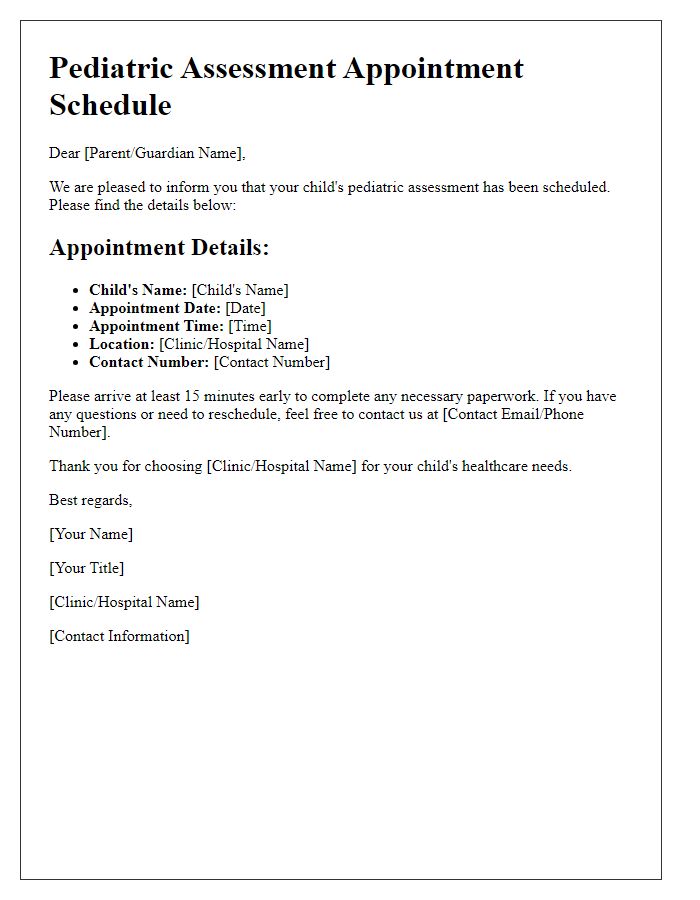


Comments